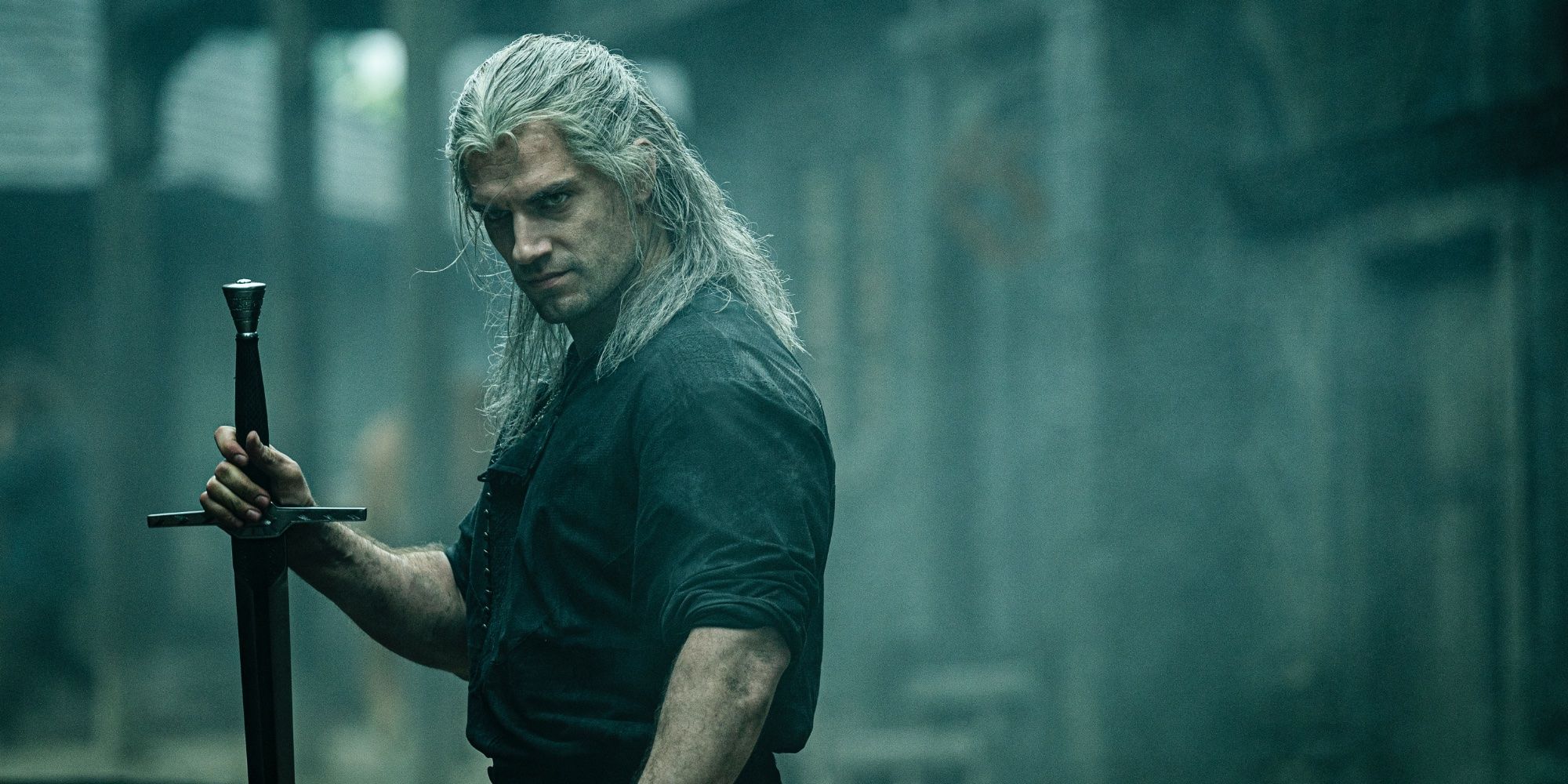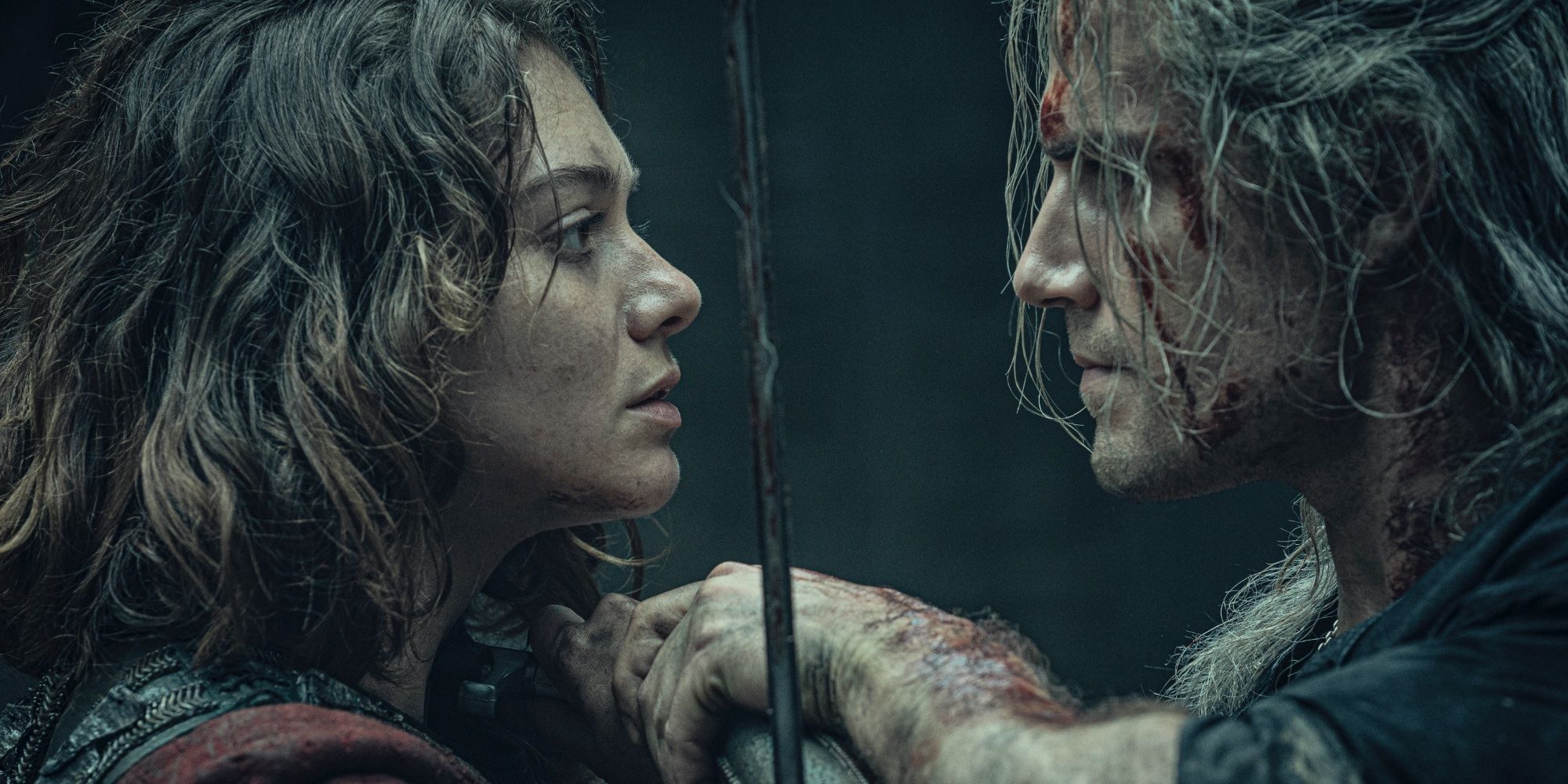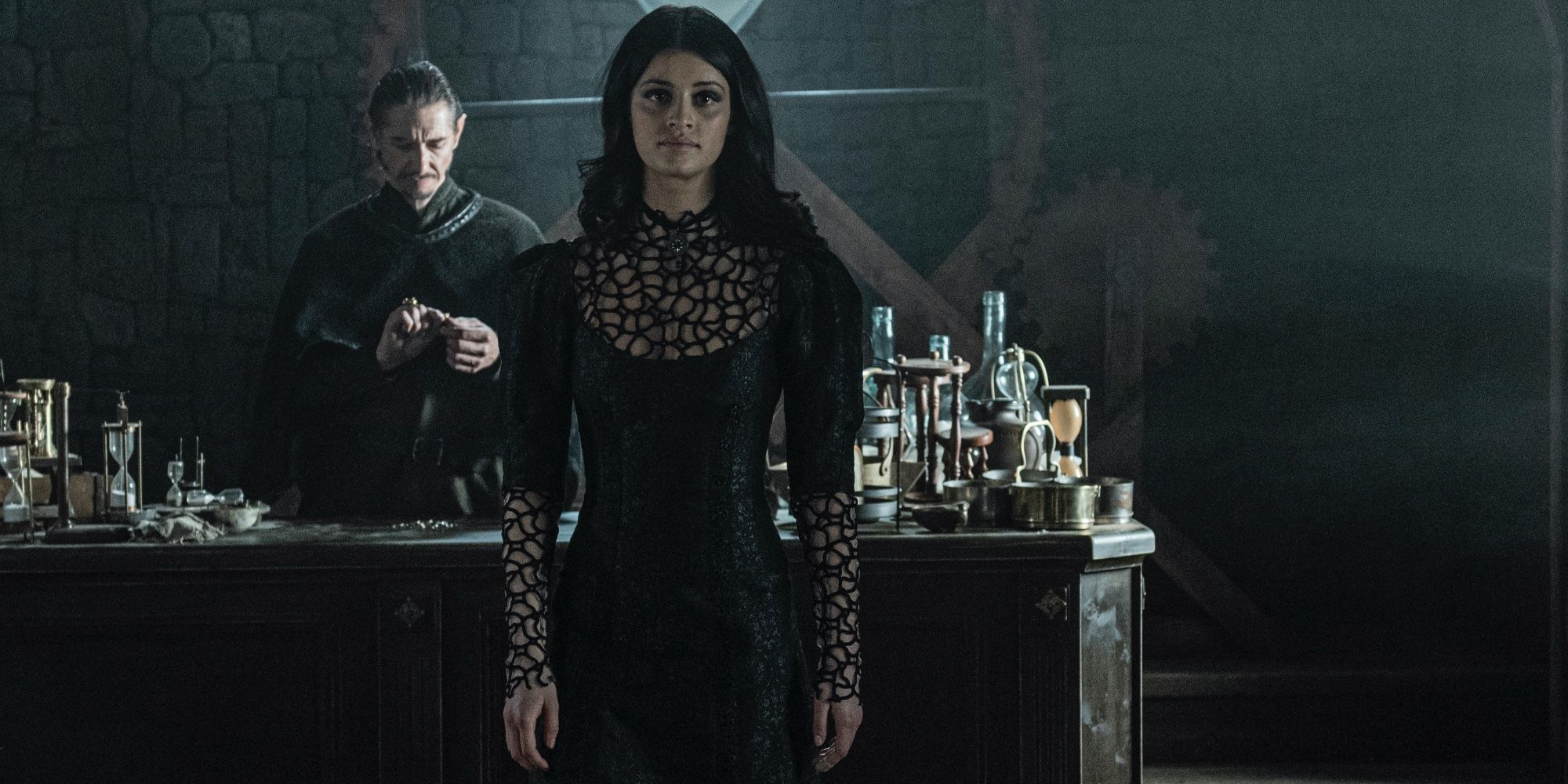For all its sword-and-sorcery action, all its graphic depictions of sex and violence, and for its complex, possibly convoluted storyline, Netflix’s The Witcher is also a surprisingly funny series, one that, more often than not, demonstrates a deft hand at combining all of the above with a well-timed joke or pithy quip. What’s more, is that, although series star Henry Cavill is easily the main attraction as the grizzled Witcher Geralt of Rivia, the series allows room for its leading man to be more than a sword-swinging mutant with copper eyes and a flowing mane of slivery hair. Like so much of the rest of the show, Cavill demonstrates an unexpected ability to shift tone, as need be, offering up the occasional breath of fresh air to keep the series from stultifying on account of genre self-seriousness.
Adapted from the novels by Andrzej Sapkowski by series creator and showrunner Lauren Schmidt, The Witcher also very clearly draws from the popular video game series of the same name, especially in its depiction of Geralt, or, rather, Cavill’s depiction of Geralt, as his inflection is at times very similar to that of Doug Cockle, who provided the character’s voice in the games. That’s not a bug but a feature, as it is indeed quite likely that most viewers will be tuning in after having devoted hundreds of hours of their lives to the immersive games, if only to see the massive virtual worlds and characters rendered (slightly) more lifelike.
What Schmidt clearly understands with regard to adapting The Witcher is that it is a hardcore fantasy series above all else. There is absolutely zero attempt to make this project palatable for those who can’t or won’t become invested in a massive world of make believe, especially one that, in terms of violence and nudity, gives Game of Thrones a run for its money. So, right off the bat, The Witcher will immediately appeal to its large and loyal fan base, though it may prove difficult to recruit those who, in the words of the inimitable Ian McShane, thought Thrones was little more than “T*** and dragons.”
Like its genre predecessor, The Witcher comes to television with its own enormous and unwieldy mythology in tow. The job of Schmidt and her writers’ room, then, is to make the story accessible to curious newcomers while still appealing to those who know everything about Geralt and the unique world he inhabits. That is no easy task as some of the early episodes demonstrate, as it feels at times the entire endeavor is going to come apart at the very visible seams. Things settle down soon enough, however, and Cavill appears to grow more comfortable in the role, becoming more sardonic as the season progresses and moving closer to the point where he’s able to make the character more his own.
This puts the show, the audience, and the actors on what appears to be a steep learning curve, one that’s made practically precipitous by the intricate storyline(s) involving not only Geralt, but also Ciri (Freya Allan) and Yennefer (Anya Chalotra), as they come to discover their place in the conflict between the many kingdoms and creatures that inhabit this story. To aid in the getting-to-know-you phase of the story, The Witcher takes an episodic, fetch-quest-y approach in the early going. This not only allows the show to show off its special effects budget, but also its detailed and imaginative costumes and impressive set design. All of which helps sell the fantasy, and demonstrates the show’s unyielding commitment to its particular genre.
The multiple character threads also allow the writers to fill in blanks before the narrative knows they’re even there. It’s a clever trick, not unlike HBO’s Westworld, though it feels less shamelessly opportunistic in terms of confusing the audience. It helps that, like everything else on the service, The Witcher is an all-at-once binge-watch, so there’ll be no reddit conspiracy threads trying to piece the story together before the story actually, you know, comes together. Whether or not that will result in the sort of fan fare HBO’s reboot gained in its first season remains to be seen (it’s likely that, like everything on Netflix, The Witcher will mostly fade into memory within a week or two), but it at least suggests the series is intent on doing more with its storytelling than offering fan service-y bathtub scenes and showing off Cavill’s impressive sword-fighting skills.
Like any kind of fantasy that takes itself seriously, The Witcher can at times be a little cringe inducing. Cursed soldiers and mythical beasts help define the world, but they sometimes operate as inadvertent obstructions to the viewer’s suspension of disbelief. Add to that the way the dialogue is spoken in a variety of different ways, with some characters coming off as contemporary, while others sound as though they’re reading from a fairy tale written in Old English, and The Witcher occasionally teeters on the verge of disaster.
But that disaster never comes. In fact, of the episodes made available to critics ahead of the premiere, each one become progressively better than the last. Early monster-hunting episodes soon give way to an overarching plot that involves Geralt, Ciri, and Yennefer, with Jaskier (Joey Batey), a young performer and irritant/friend of Geralt’s, becoming an effective leavening agent to the overwhelming density of the story. As such, Netflix strikes first in the race to replace Game of Thrones. It’s a worthwhile effort, one that is sure to please fans and, thanks to Cavill and the show’s abundance of humor, will likely please newcomers as well.
The Witcher premieres Friday, December 20 on Netflix.



